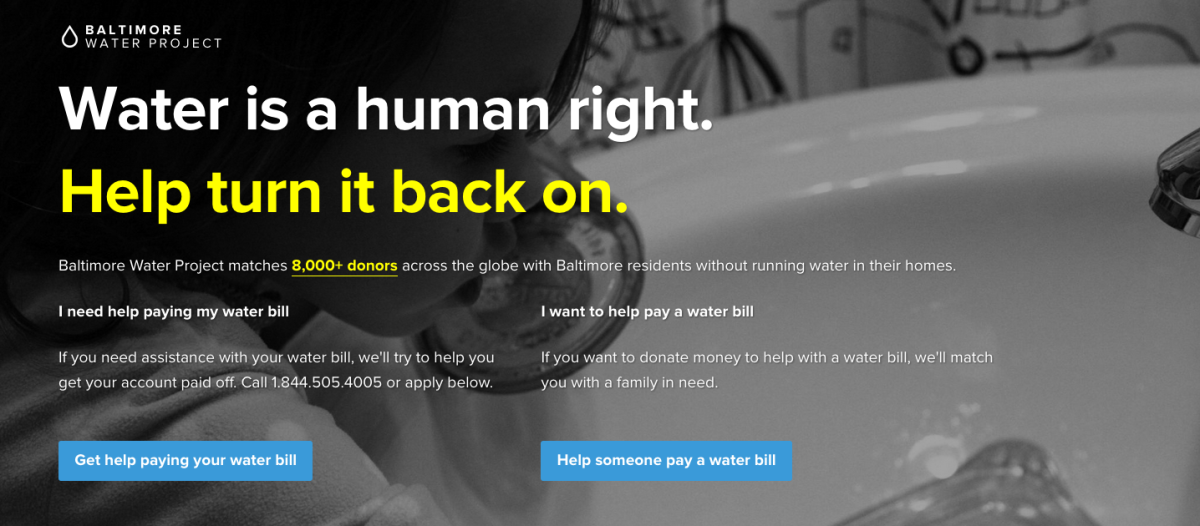Tiffani Ashley Bell knows that fraught water issues in the U.S. aren’t limited to the deserts of the Southwest or rural areas where stories of lacking access to running water abound.
“I think people take for granted that you have running water in the U.S., but it turns out that a lot of people don’t and it’s not who you think it is,” said Bell. “People in cities have issues paying their water bill.”
Wherever there's poverty, there's people that have trouble paying utility bills
Take Detroit. It happens to have access to the world’s largest freshwater supply. It has also been home to mass water shutoffs over the past year for people who hadn’t paid their bills, as The Atlantic and others have documented.
Bell started digging into the issue while working as a Code for America fellow. In Detroit, she helped build a platform that cultivated a network of donors who provided people with help paying their water bills.

“So far we have over 1,400 people in Detroit in the pipeline that need help,” she said.
Now, she’s bringing a branch of the nonprofit she cofounded in the Motor City to Baltimore.
The Baltimore Water Project seeks to connect a network of donors to people who need help paying their water bills. The site is now live.
Check it out
For donors, the platform can be used to pay a fellow citizen’s utility bill directly, or through the website. Donations can be as little as $5 or $10.
Bell has been doing outreach with community leaders and groups to find people who need help in Baltimore. In Detroit, the project partnered with the United Way, and even got city government onboard to refer residents directly.
Despite constantly increasing water bills that recently saw a 42 percent rise over three years, Baltimore city has shown interest in making water costs more equitable. As Detroit was shutting off water en masse, Baltimore Mayor Stephanie-Rawlings Blake rolled out an assistance program to help people pay their bills. The city has also been installing smart meters to make bills more accurate.
There’s differences between how Baltimore and Detroit charge for water, as well as the politics in the cities that would allow the Project to be grow. But that doesn’t matter to Bell. She believes water should be considered a human right. After all, it’s already a basic need.
“Wherever there’s poverty, there’s people that have trouble paying utility bills,” she said.







